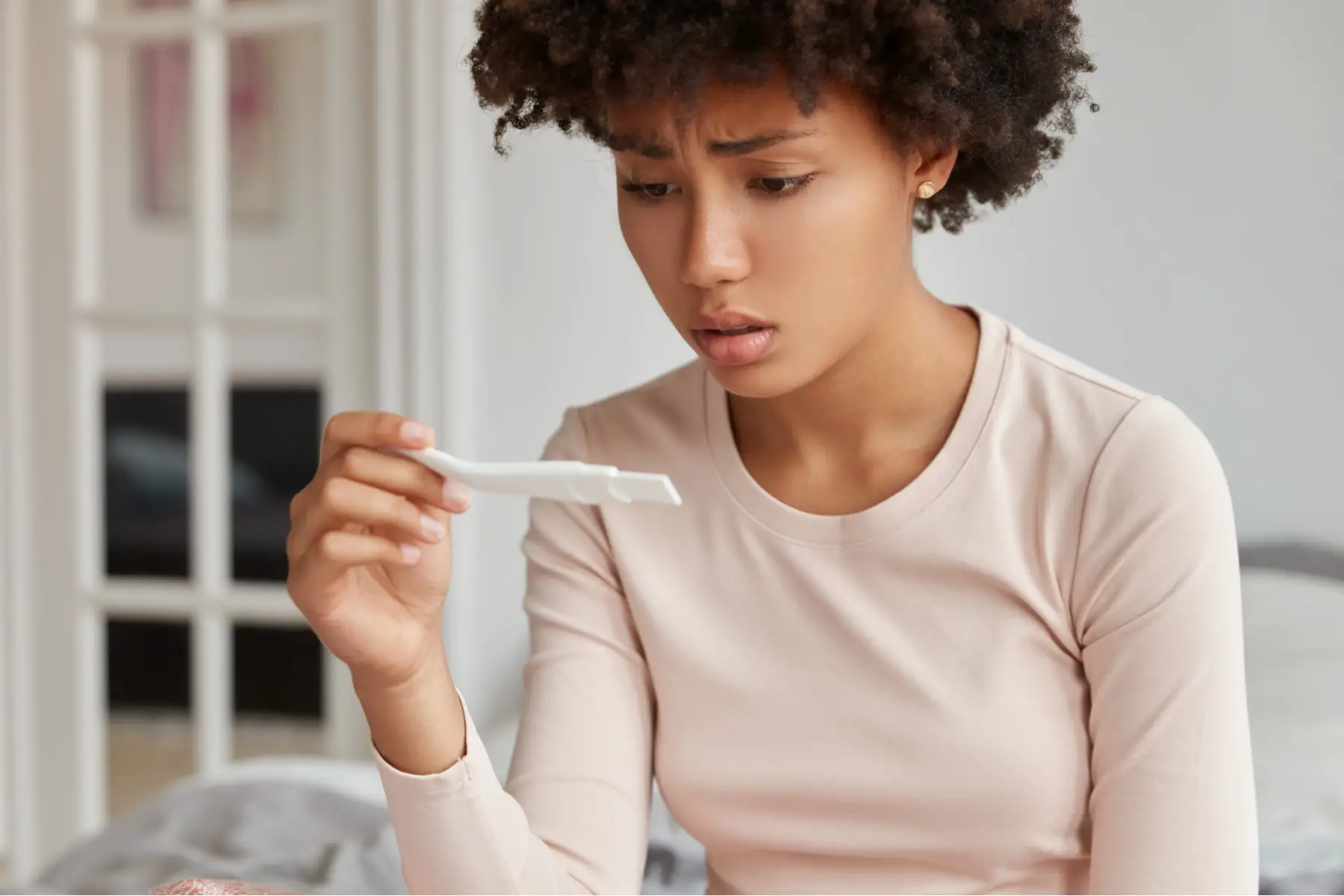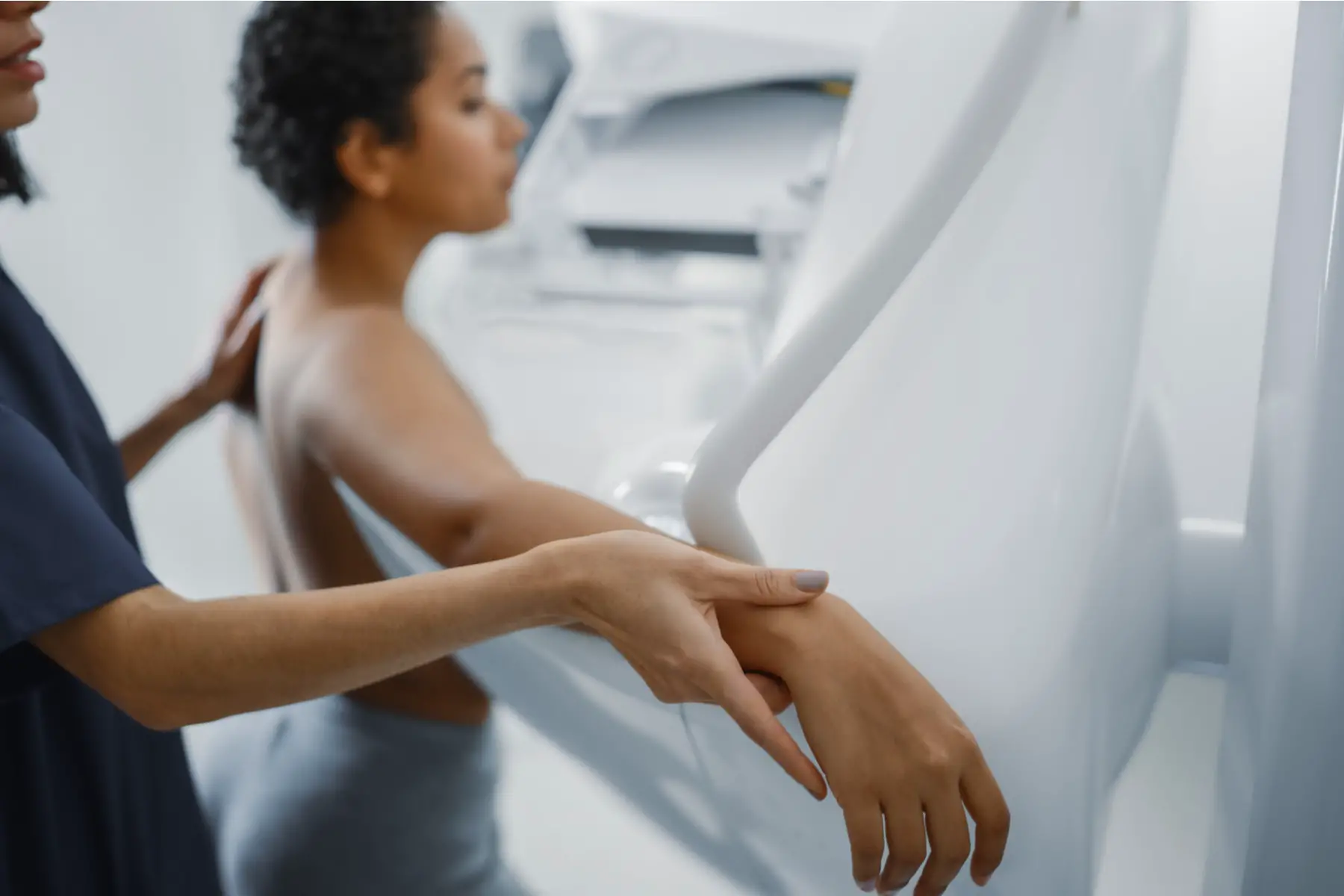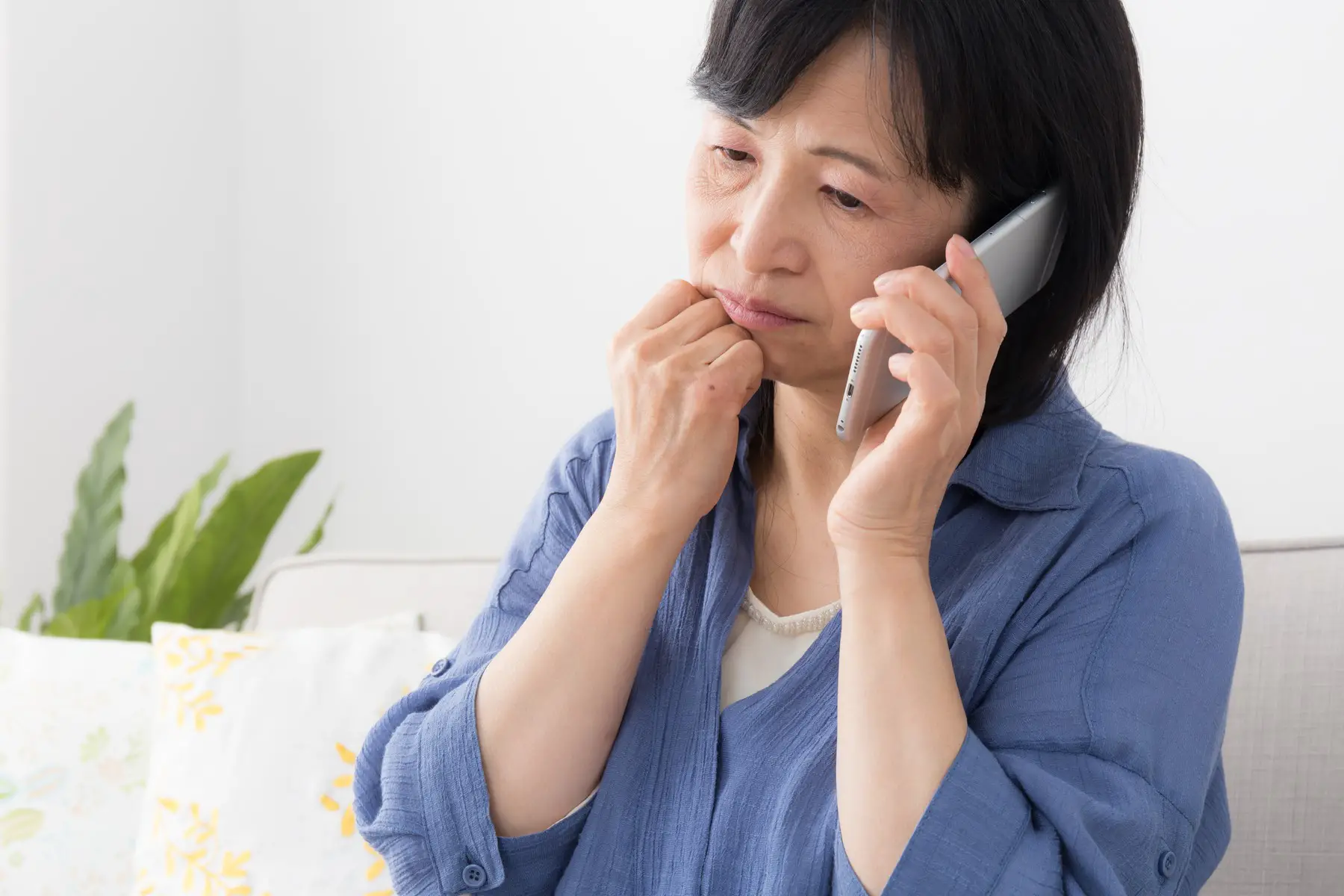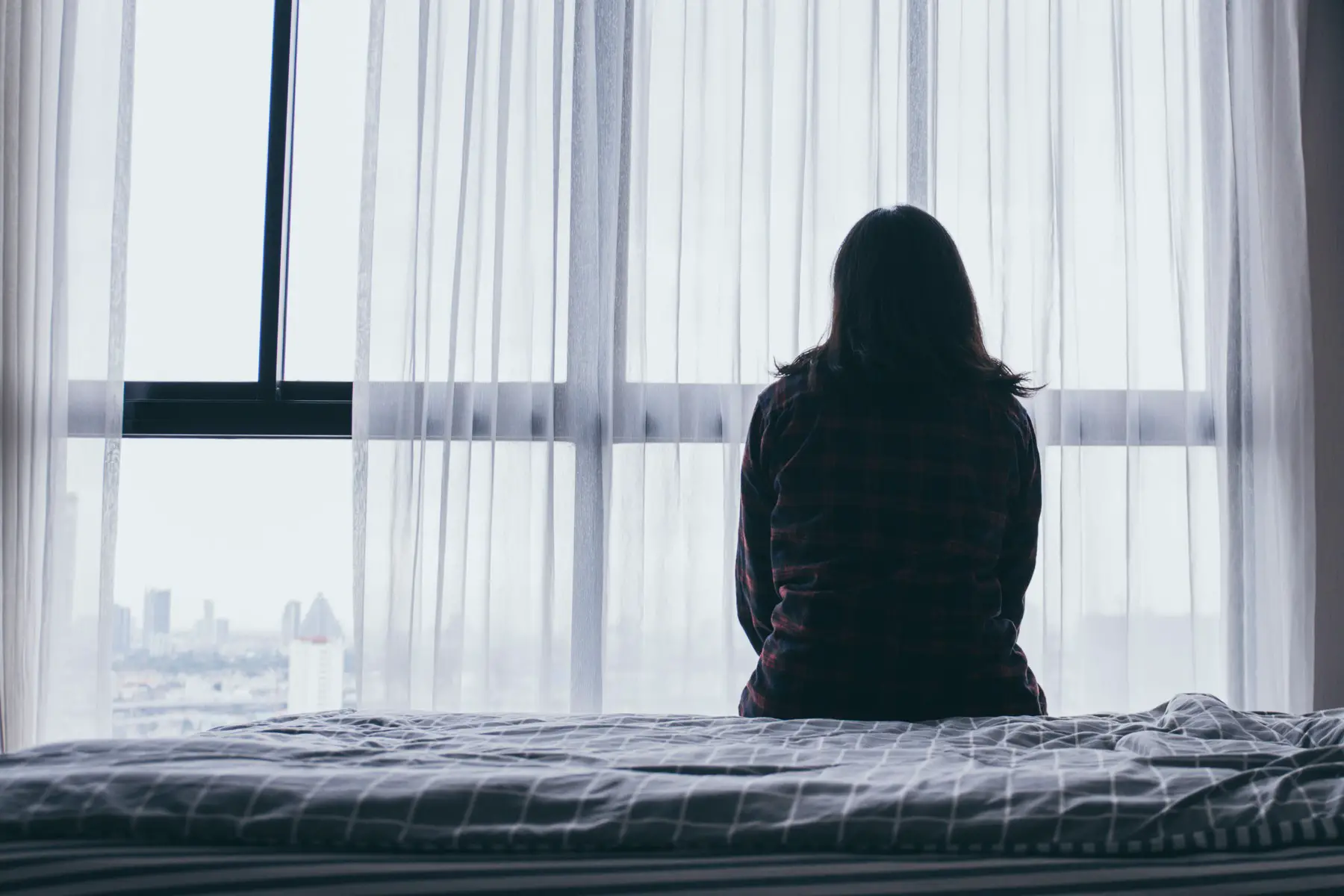Overall, the French healthcare system is good and highly subsidized, and additional private insurance is also available. Nonetheless, as an expat woman, you’ll want to know where to go for screenings, sexual health advice, or pregnancy care.
We cover these areas and many more in the following sections:
- Women’s health in France
- Accessing women’s healthcare services in France
- Insurance for women’s healthcare in France
- Gynecologists in France
- Women’s contraception in France
- Maternity care services in France
- Breastfeeding in France
- Fertility treatments in France
- Abortion in France
- Menopause in France
- Cancer screenings in France
- Women’s sexual health in France
- Availability and cost of feminine hygiene products
- Women’s clinics and health centers in France
- Women’s mental health services in France
- Services dealing with abuse and violence against women in France
- Useful resources
Allianz Care
Allianz Care is a world leader in providing international health insurance. Their various premiums provide professionally designed solutions for a variety of expat lifestyles. So, wherever your life takes you, make sure you have the right health protection for you and your family with Allianz Care.
Women’s health in France
General healthcare provision in France is excellent. Both women and men can access state-subsidized healthcare and treatment through public and private healthcare providers. Only 3% of French people state that they have unmet needs for medical examinations.

Although women in France are 4% less likely than men to consider their health good or very good, these results reflect the EU average. Moreover, women have a life expectancy of 86, compared to 80 for men. Overall, life expectancy in France is among the highest in Europe, outdone only by Spain and Italy.
Accessing women’s healthcare services in France
The French medical system is an integrated network of public and private institutions and healthcare providers. Anyone residing in France with a French state health insurance card (Carte Vitale) has access to free or highly subsidized healthcare. Moreover, as a foreigner, if you have been in France for more than three months, you can also access state healthcare through the Protection Universelle Maladie (PUMA).
The French healthcare system works on co-payment and flat charges for specific types of services and consultations. So, for instance, if you go to the GP, they may charge you around €25 for a basic consultation. The doctor will scan your Carte Vitale and you will be reimbursed 70% of the fee in the following weeks. The remaining 30% comes out of your pocket or is covered by your private health insurance (known as Mutuelle).
Insurance for women’s healthcare in France
Once you have a Carte Vitale, the state health insurance will cover most of your medical costs. For example, this state provision covers almost all pregnancy-related check-ups and exams. Only the first two ultrasounds are not covered at a 100% rate but the standard 70%. Additional private insurance can cover the remaining fees and costs related to your hospital stay when you give birth.
It’s worth noting that you may need to be signed up for three to six months with certain private insurers before you can benefit from coverage for pregnancy and birth-related expenses. Some insurance companies also cover extra IVF treatment, while others pay a premium once your child is born. This is called a prime de naissance and may range from €100 to around €400. These are all elements to consider when choosing your Mutuelle. You can compare private insurers depending on your personal criteria, using Bonne Assurance and Lelynx.
As an alternative to additional coverage, some expats choose to take out private health insurance for all their medical needs. These premiums can be sorted before arriving in France and offer English-speaking support. Private health insurance companies operating in France include:
In addition, if you’re an EU/EEA national, you may be able to access state-provided healthcare with a European Health Insurance Card (EHIC).
Gynecologists in France
You do not need a GP referral to make an appointment with a gynecologist in France. You can consult them for all women’s health concerns, from infertility to pregnancy, regular screenings, and advice on sex and contraception. The costs may vary, but the average fee for a gynecological consultation is €30 upfront. Although some may charge double that, your state insurance always reimburses a portion. You or your mutuelle will need to cover the balance.
However, gynecologists in France are in high demand, and their numbers have fallen drastically in recent years. Only three gynecologists are available per 100,000 potential patients. This is largely due to retirements and fewer new cohorts taking over. As a result, women are increasingly turning to their GPs for gynecological issues. In addition, it’s more common for a midwife to follow your pregnancy.
Despite this, the French health system encourages women to have annual gynecological check-ups and regular smear tests. These exams also involve checking for breast lumps. France has one of the highest survival rates for breast cancer in Europe, despite it being the most common cancer among French women. In addition, the rate of hysterectomies is very low: less than 7% of 50-year-old women compared to 20–30% in other European countries and around 40% in the US.
To find a gynecologist, search for gynécologue on Doctolib. However, many won’t be taking new patients. Moreover, you may have to wait up to six months for an appointment, even with your registered gynecologist. If you have an urgent matter, you’ll likely have to turn to your GP or the gynecological unit at your local hospital.
Women’s contraception in France
Condoms are readily available in pharmacies and supermarkets – a prescription is not necessary. For other contraception requiring prescriptions, you can consult your gynecologist or GP, or go to a family planning center (centres de planification ou d’éducation familiale – CPEF). A range of contraception is available in France, including hormonal contraception (e.g., the pill, patches, implants, vaginal rings), copper coils, and sterilization.

When your contraception is prescribed, the state health insurance covers 65% of the cost for adults and 100% for minors over 15. Intrauterine devices (IUDs) typically cost around €100 upfront, and are reimbursed.
The morning-after pill is available in pharmacies. It costs between €4 and €20 depending on the brand and is also covered by state health insurance. You can also get it for free and anonymously at family planning centers (CPEF).
Maternity care services in France
There are many maternity services available in France. Midwives and gynecologists can provide prenatal care, and you can freely choose one based on your location and their availability.
Hospital births are encouraged and home births are rare in France. However, birthing centers run by midwives aim to offer a more natural and less medical environment.
The good news is that state health insurance covers most examinations and support services. This includes prenatal classes and postnatal physical re-education (la rééducation périnéale). Re-education means toning the pelvic floor muscles, vagina, and core. Only your first two ultrasounds (échographies) before the fifth month are not fully reimbursed, and you or your private insurance (Mutuelle) must cover the small remaining costs.
Breastfeeding in France
It is legal and accepted to breastfeed in public in France. That said, breastfeeding rates are low, with only 25% of mothers breastfeeding until six months as encouraged by WHO guidelines. Almost 30% of mothers choose not to breastfeed at all. The average length of breastfeeding is around three months, which is when maternity leave typically ends.
Fertility treatments in France
If a couple struggles to conceive, they will first see their GP or gynecologist. An initial assessment will help define the treatment pathway. This can include medical or surgical treatment, and, if necessary, healthy lifestyle changes.
The treatment proposed may include stimulating ovulation, uterine artery embolization (i.e., treating fibroids without surgery), or different forms of surgical treatment depending on the issue. If initial treatment does not work, doctors will suggest medically-assisted procreation (assistance médicale à la procréation – APM). This covers:
- IVF
- Freezing sperm or eggs
- Conserving and transferring embryos
- Artificial insemination
Data from 2018 shows that 3.3% of children born in France result from medically-assisted procreation. It is possible to use donated sperm or eggs, but surrogacy is illegal. A new law voted in 2021 will ensure that all women, including single or in same-sex relationships, can access medically-assisted procreation.

In case of infertility, the state health insurance system can entirely reimburse your initial medical assessment and subsequent treatment costs, as long as you are younger than 43. This includes a maximum of four rounds of IVF and six attempts at artificial insemination. You can see the actual costs of each stage of infertility treatment here. However, you would only pay this if you are not signed up to the state social security system (sécu).
Abortion in France
According to government health statistics, 216,700 women had an abortion in France in 2017. The abortion rate is highest in the 20 to 24 age group, with 26.7 abortions per 1,000 women across the country.
Abortion laws in France
Abortion is legal in France, where 58% of abortions are medical. Medical abortions (using prescription medications to end the pregnancy) are available until the seventh week of pregnancy. However, if you have a medical abortion in your sixth or seventh week of pregnancy, this must take place in a medical setting, usually a hospital. You can get a surgical abortion until the end of your twelfth week of pregnancy. Beyond this date, abortions are only possible on the following medical grounds:
- The pregnancy poses a danger to the mother’s life
- The fetus has an incurable medical condition
France fully decriminalized abortions in 1993. Any act deemed to obstruct a person’s access to abortion is punishable by high fines and up to two years in prison.
Getting an abortion in France
A medical professional will first date the pregnancy, usually by ultrasound, before recommending the most appropriate technique (medical or surgical). The patient has two mandatory medical appointments before the procedure takes place. In addition, the woman can get a session with a mental health professional, which is obligatory for minors.
It’s worth noting that minors of any age can access abortions anonymously with no upfront costs without their parents’ knowledge. However, an adult – of their choice – must accompany them.
Abortion procedures can take place in hospitals, medical clinics, or family planning centers. Doctors and midwives can administer medical abortions, but only doctors can practice surgical abortions. You don’t need to get a GP referral to access any of these services.

State health insurance fully reimburses all abortion procedures. It’s also worth noting that the abortion service provider will keep your appointment confidential. You can even choose to remain completely anonymous.
Medical and surgical abortions
For medical abortions, since COVID-19, new regulations provide free and anonymous medical abortive drugs for all women at pharmacies, although this may be temporary. Any documents sent or given to you should not mention the nature of the medication prescribed.
For surgical abortions, if you are older than 18, you have to go through a private provider (tiers payant) if you wish to seek anonymity. You will pay upfront, and any documents you receive will not state your name or the procedure. The costs of medical abortions, including all consultations and treatment, usually range from about €180 to €280. The costs of a surgical abortion vary between €460 and €660. This depends on the length of hospitalization and whether you have local or general anesthesia.
Menopause in France
For women going through menopause, GPs and gynecologists offer advice about managing symptoms, lifestyle changes, and treatments available. The services you can access include consultations, treatment for preventing osteoporosis, counseling, and hormone-replacement therapy. Speak with your doctor if your menopause symptoms are impacting your everyday life. They will advise you about the risks and benefits of different treatments and refer you to a specialist if needed.
Like most medical services in France, you will pay upfront for consultations and treatment. However, state health insurance reimburses most of these costs. Either you or your private health insurance must cover the remainder (around 30%).
Cancer screenings in France
Screening for cervical cancer
In France, there is a national cervical screening program for women aged 25 to 65. The first two pap smears are done one year apart. After that, your gynecologist does it every three years during routine check-ups. Other health professionals, including your GP or midwife, can also perform these tests.

For women over 30, the recommendation is to do HPV tests (for human papillomavirus) every five years. The HPV vaccine is now recommended in France for all adolescents (girls and boys). The typical age range is between 11 and 14, but older teens between 15 and 19 can access catch-up vaccinations. You can also read more about other vaccinations in France.
Screening for breast cancer
In France, breast cancer is the most common form of cancer in women and the leading cause of death. From the age of 25 to 50, during your annual gynecological check-ups, the health professional will also examine your breasts for lumps. Doctors in France recommended a breast scan every two years for women between 50 and 74 with no particular risks or symptoms. Your doctor may suggest additional monitoring if you are specifically at risk of breast cancer due to genetics or other factors.
You will get a reminder by mail from a regional cancer screening center to go for check-ups if you forget to book an appointment. State health insurance fully covers these screenings.
Women’s sexual health in France
Contraception and advice on sexual health are essential aspects of women’s health in France and are relatively easy to access. You can talk to your GP, gynecologist, or midwife about any issues related to your sexual health, or visit a family planning center (centres de planification ou d’éducation familiale – CPEF).
Availability and cost of feminine hygiene products
Tampons and sanitary towels are readily available in France, in supermarkets, and in pharmacies. They are subject to a reduced tax rate of 5.5%. Therefore, these products are relatively inexpensive. You can get packets of 10 to 15 sanitary towels for less than €1 and tampons for €1.60.
Alternative products such as menstrual cups, absorbent underwear, and reusable pads are also available online and increasingly in pharmacies and stores. Notably, it is vital to use menstrual cups correctly. Depending on the brand, cups cost around €16 (per cup), underwear between €30 to €60, and pads from €30 for a three-pack.
Women’s clinics and health centers in France
In France, you will find private clinics that solely treat women or departments dedicated to women’s health within larger state-run health centers. These centers aim to move away from a paternalistic approach to women’s well-being. Some upscale health centers approach women’s healthcare holistically: physically, mentally, and spiritually. Lastly, women’s centers known as Maison des Femmes offer women from low-income communities services that include healthcare education, prevention, and advice on sexual health.
Women’s mental health services in France
According to a 2016 policy (in French) from the Health Ministry, women are more at risk of developing depression. Moreover, women are at an increased risk for suicidal ideation and imagery.
Your GP, gynecologist, or midwife can refer you to mental health services. Some of these deal specifically with issues affecting women, including post-partum disorders. It’s estimated that these disorders affect over 10% of women. Therefore, the midwife and even pediatrician you see in the first months following your child’s birth will pay attention to symptoms and refer you if necessary. Specialized nurses can also come to your home after the birth.

In addition, maternity wards in hospitals offer free consultations, but there may be long waiting lists. On the other hand, you can also contact private mental health practitioners (i.e., psychiatrists, psychologists, psychotherapists, and counselors). You will have to pay for these private consultations, but state health insurance can reimburse part of the costs. If you sign up for private health insurance (Mutuelle), they often cover therapy sessions with a mental health professional.
Services dealing with eating disorders in France
According to government health guidelines (in French), women are overwhelmingly impacted by eating disorders (i.e., 90% of all sufferers are female), with anorexia affecting 0.5% of young girls in France. There are specific health centers in France that deal with eating disorders (called troubles du comportements alimentaires or TCA).
Suppose you need specific medical treatment or seek hospitalization for an eating disorder. In that case, you can find a service suited to your medical needs on the FFAB directory or through the interactive map of the Association Autrement. The FFAB (Fédération Française Anorexie Boulimie) is an association that brings together specialists in screening, diagnosis, management, treatment, and research on eating disorders. It also represents federations and associations of sufferers and their families. Meanwhile, Association Autrement aims to provide information, train professionals, and support people struggling with eating disorders through various therapeutic approaches.

You can also call Anorexie Boulimie Info Ecoute helpline on 0810 037 037.
Services dealing with abuse and violence against women in France
The French government acknowledges the rise in violence against women, specifically domestic violence. The Ministry for Gender Equality estimates that domestic violence affects around 219,000 women in France each year. As a result, in the last few years, the government has financed thousands of new beds for women’s shelters.

The French government has a website dedicated to helping survivors of gender-based violence and abuse: Arrêtons Les Violences. This website lists the numbers you can call, including a dedicated 24-hour helpline (3919) for vulnerable women and those close to them. There is also an anonymous online chat function.
In addition, the website has links to all national associations dealing with violence against women, and a directory. These associations are listed below for quick reference.
National associations
- La Fédération nationale solidarité femmes (FNSF): federation of 73 organizations against violence towards women – call 3919 for information and guidance
- La Fédération nationale des Centres d’Information sur les Droits des Femmes et des Familles (FN CIDFF): federation for information centers on the rights of women and children
- Le Collectif féministe contre le viol (CFCV): support survivors of rape and sexual abuse – hotline 0800 05 95 95
- Le Mouvement français pour le planning familial (MFPF): campaigns for the right to sex education, contraception, abortion, gender equality – information line 0800 08 11 11
- La Fédération nationale GAMS: organization focusing on violence against women and children in migrant populations with a special interest in genital mutilation, and forced or child marriages
- Voix de Femmes: fighting against forced marriages and honor crimes
- L’Association européenne contre les Violences faites aux Femmes au Travail (AVFT): specializes in eliminating sexist discrimnation and sexual violence at work
- Femmes pour le dire Femmes pour agir (FDFA): working for equality of disabled women
- En Avant toutes: works with young people to raise awareness and change sexist behavior
- Le Collectif de lutte antisexiste contre le harcèlement sexuel dans l’enseignement supérieur (CLASCHES): student organization mobilized against sexual harrassment in higher education
- France victimes: federation for 130 victim support organizations (concerning all types of violence and crime) – information line 166006
- La Fédération nationale des associations et des centres de prise en charge d’auteurs de violences conjugales et familiales (FNACAV): federation specializing in care centers working with the perpetrators of domestic violence – information line 08 019 019 11
Useful resources
- Ministère des Solidarités et de la Santé – website of the Health Ministry
- Ministère chargé de l’égalité entre les femmes et les hommes – Ministry of Gender Equality and Diversity
- Santé Publique France – the national health agency covering all aspects of public health
- L’assurance Maladie (AMELI) – the state health insurance
- Arrêtons les Violences – a government website dedicated to tackling all forms of violence against women
- Le Planning Familial – a feminist organization with centers across France that works to educate and support women in all aspects of sexual health and family planning and fights violence against women
- Le Réseau de Santé Périnatal Parisien (RSPP) – a Paris-based association that regroups information and gives guidance to future mothers
- La Fédération Française Anorexie Boulimie (FFAB) – an association that federates health professionals and the families of those suffering from eating disorders
- Association Autrement – provides support and advice related to eating disorders




